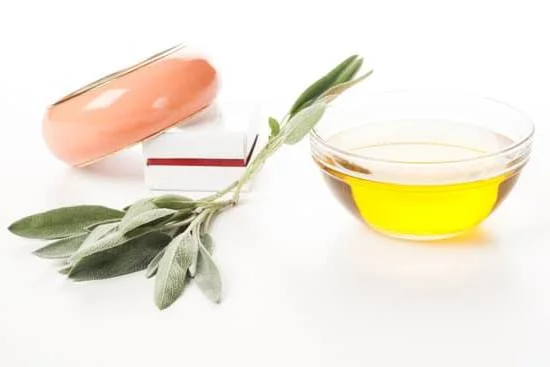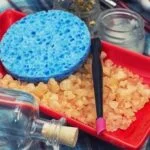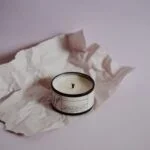Can you use aromatherapy oils on hair? This is a question that many people have asked when it comes to incorporating essential oils into their hair care routine. In this article, we will delve into the world of aromatherapy oils and discover their potential benefits for hair health and beauty.
Aromatherapy oils are highly concentrated plant extracts that are known for their therapeutic properties. They have been used for centuries in various cultures around the world to promote physical and emotional wellbeing. But can they be just as effective when it comes to our hair?
Understanding the potential of aromatherapy oils for hair care involves understanding how they work and what makes them beneficial. These oils can nourish, repair, and enhance the health of our hair, making it stronger, shinier, and more manageable. In addition, different types of aromatherapy oils offer unique properties that target specific hair concerns.
In the following sections, we will explore the different types of aromatherapy oils commonly used for hair care, including lavender, rosemary, tea tree, and more. We will also provide a step-by-step guide on how to use these oils effectively on your hair and share some safety tips and precautions you should keep in mind. Additionally, we will address common concerns and FAQs regarding using aromatherapy oils on hair.
So if you’ve ever wondered how you can incorporate aromatherapy oils into your hair care routine or if they are even safe to use on your precious locks, read on. With the right knowledge and practices, you can unlock the power of these natural extracts for beautiful, healthy hair.
Understanding Aromatherapy Oils
Aromatherapy oils, also known as essential oils, have been used for centuries for their various therapeutic properties. These oils are derived from plants and contain highly concentrated natural extracts that carry the distinct aroma of the plant they come from. Aromatherapy oils are not only used for relaxation and stress relief but also have numerous benefits when it comes to hair care.
Essential oils work in different ways to improve the health and condition of the hair. Firstly, they provide nourishment to the hair follicles, which promotes healthy hair growth. Essential oils also help repair damaged hair by strengthening the strands and preventing breakage. Additionally, these oils can enhance the appearance of hair by adding shine and improving its texture.
Different aromatherapy oils offer different benefits for hair care. Lavender oil, for example, is known for its calming properties and can help soothe an irritated scalp. Rosemary oil stimulates blood circulation in the scalp, promoting hair growth. Tea tree oil has antibacterial and antifungal properties, making it effective against dandruff and other scalp conditions.
When using aromatherapy oils on hair, it’s important to dilute them with a carrier oil like coconut or jojoba oil before applying them topically. This helps prevent any potential skin irritation or sensitivity reactions that some people may experience with undiluted essential oils. It’s also advisable to do a patch test on a small area of skin before applying the mixture to your entire scalp.
| Aromatherapy Oil | Main Benefits |
|---|---|
| Lavender Oil | Soothes scalp, promotes relaxation |
| Rosemary Oil | Stimulates hair growth, improves circulation |
| Tea Tree Oil | Treats dandruff, fights scalp infections |
The Benefits of Aromatherapy Oils for Hair
Aromatherapy oils offer a myriad of benefits for hair nourishment, repair, and enhancement. These natural oils are derived from plants and possess various properties that can effectively improve the health and appearance of your hair. By incorporating aromatherapy oils into your hair care routine, you can enjoy stronger, shinier, and more voluminous locks.
One of the main benefits of using aromatherapy oils on hair is their ability to provide deep nourishment. These oils are rich in essential fatty acids, vitamins, and antioxidants that can penetrate the hair shaft and moisturize it from within. This helps to prevent dryness and dehydration, resulting in healthier-looking hair.
Furthermore, aromatherapy oils can also aid in repairing damaged hair. Whether your hair has been subjected to heat styling tools, chemical treatments, or environmental stressors like pollution or sun exposure, these oils can help restore its vitality. They work by sealing moisture into the cuticle layer of the hair, smoothing down any roughness or frizz caused by damage.
In addition to nourishment and repair, aromatherapy oils can also enhance the overall appearance of your hair. Different types of oils have unique properties that can address specific concerns such as promoting faster hair growth or combating dandruff. For instance, lavender oil is known for its calming effects on the scalp and promoting healthy hair growth. On the other hand, rosemary oil stimulates blood circulation to the scalp and strengthens the roots of the hair.
With their nourishing, repairing, and enhancing properties, aromatherapy oils offer a natural solution for achieving beautiful and healthy hair. Adding them to your regular hair care routine can provide numerous benefits while avoiding harsh chemicals found in many commercial products. In the next section we will explore different types of aromatherapy oils commonly used for hair care purposes.
Different Types of Aromatherapy Oils for Hair
Aromatherapy oils have gained popularity for their many benefits in hair care routines. These oils are derived from plants and contain concentrated natural compounds that can nourish, repair, and enhance the health of our hair. There are various types of aromatherapy oils available in the market, each with its own unique properties and benefits.
One popular aromatherapy oil for hair is lavender oil. Known for its calming and soothing scent, lavender oil also has antimicrobial properties that can help combat dandruff and scalp infections. It can also promote hair growth by improving blood circulation in the scalp. Additionally, lavender oil is beneficial for those with thinning hair as it strengthens the hair follicles and reduces breakage.
Rosemary oil is another common aromatherapy oil used in hair care. It has been found to stimulate hair growth, prevent premature graying, and alleviate scalp itchiness or irritation. Rosemary oil contains antioxidants that promote a healthy scalp environment by reducing inflammation and improving blood circulation.
Tea tree oil is renowned for its antimicrobial properties that can effectively fight off bacteria, fungi, and viruses on the scalp. This makes it a great choice for individuals dealing with dandruff or an itchy scalp. Tea tree oil can also unclog hair follicles and help regulate excess sebum production, promoting a healthier scalp overall.
Apart from lavender, rosemary, and tea tree oils, there are several other types of aromatherapy oils that can benefit your hair. Some examples include peppermint oil (known for its cooling sensation), chamomile oil (soothing to the scalp), cedarwood oil (stimulates circulation), and ylang-ylang oil (promotes shine). Each of these oils has its own unique properties that cater to different hair concerns.
In summary, there is a wide range of aromatherapy oils that can be used for hair care. Lavender, rosemary, tea tree, peppermint, chamomile, cedarwood, and ylang-ylang are just some examples of popular oils with specific benefits for the hair and scalp. Whether you are looking to nourish your hair, treat specific concerns like dandruff or hair loss, or simply enhance shine and manageability, there is an aromatherapy oil out there that can meet your needs.
| Aromatherapy Oil | Benefits |
|---|---|
| Lavender Oil | Nourishes hair follicles, promotes hair growth, reduces breakage |
| Rosemary Oil | Stimulates hair growth, prevents premature graying, soothes scalp irritation |
| Tea Tree Oil | Fights scalp infections and dandruff, unclogs hair follicles |
| Peppermint Oil | Cools the scalp, stimulates circulation |
| Chamomile Oil | Soothes the scalp |
| Cedarwood Oil | Stimulates circulation in the scalp |
| Ylang-Ylang Oil | Promotes shine in hair |
How to Use Aromatherapy Oils on Hair
Using aromatherapy oils on hair can be a beneficial and enjoyable experience. Not only do these oils provide nourishment and repair to the hair, they also enhance its appearance and overall health. However, it is important to use them correctly in order to maximize their benefits. This section will provide a step-by-step guide on how to use aromatherapy oils on hair, as well as some best practices to ensure optimal results.
Step 1: Choose the Right Aromatherapy Oil
The first step in using aromatherapy oils on hair is to choose the right oil for your specific needs. Different oils have different properties and benefits, so it is important to select one that addresses your particular hair concerns.
For example, lavender oil is known for its calming and soothing properties, making it ideal for those with dry or damaged hair. On the other hand, rosemary oil promotes hair growth and thickness, making it a great choice for individuals looking to improve the overall health of their hair.
Step 2: Dilute the Aromatherapy Oil
Once you have chosen the right aromatherapy oil, it is important to dilute it before applying it to your hair. Most essential oils are highly concentrated and can cause irritation if used undiluted.
To dilute an aromatherapy oil, mix a few drops of the oil with a carrier oil, such as coconut or jojoba oil. The ratio of essential oil to carrier oil may vary depending on personal preference and sensitivity, but a general guideline is 3-5 drops of essential oil per tablespoon of carrier oil.
Step 3: Apply the Mixture to Your Hair
After diluting the aromatherapy oil, you can now apply it to your hair. Start by parting your hair into sections and gently massage the diluted mixture into your scalp using your fingertips. This will help stimulate blood circulation and promote absorption of the oil.
Then, work the oil down the length of your hair, making sure to evenly distribute it from root to tip. For best results, leave the oil on your hair for at least 30 minutes, or overnight if possible, before rinsing it out.
Best Practices for Using Aromatherapy Oils on Hair
In addition to following the step-by-step guide above, there are some best practices to keep in mind when using aromatherapy oils on hair. Firstly, always perform a patch test before applying any new oil to your entire head of hair, as some individuals may be allergic or sensitive to certain oils.
It is also important to start with a small amount of oil and gradually increase the quantity as needed. Lastly, be consistent with your use of aromatherapy oils and allow time for them to work their magic – results may not be immediately noticeable, but with regular use, you will begin to see improvements in the health and appearance of your hair.
By following this step-by-step guide and adhering to best practices, you can effectively use aromatherapy oils on your hair for nourishment, repair, and enhancement. Remember to choose the right oil for your specific needs, dilute it properly with a carrier oil, and apply it correctly to maximize its benefits. With consistent use and proper care, you can embrace the power of aromatherapy oils for beautiful and healthy hair.
Safety Tips and Precautions When Using Aromatherapy Oils on Hair
Using aromatherapy oils on hair can be a wonderful way to promote healthier and more beautiful locks. However, it is important to keep in mind some safety tips and precautions when incorporating these oils into your hair care routine. This section will provide you with all the information you need to ensure a safe and enjoyable experience with aromatherapy oils for your hair.
First and foremost, it is crucial to always dilute essential oils before applying them directly to your hair or scalp. Undiluted oils can cause skin irritation, allergies, or even chemical burns. To dilute the essential oil properly, mix a few drops of the oil with a carrier oil such as coconut oil, jojoba oil, or olive oil. This will not only make the application safer but also prevent any potential damage to your hair or scalp.
When applying aromatherapy oils on your hair, it is recommended to perform a patch test first. Apply a small amount of diluted oil to a small section of your scalp or behind your ear and wait for 24 hours to see if any adverse reactions occur. If you experience redness, swelling, itching, or any other discomfort, refrain from using that particular essential oil on your hair.
Additionally, it is important to be cautious about using too much essential oil at once. More does not always mean better when it comes to aromatherapy oils. Start with a small amount and gradually increase as needed while monitoring how your hair and scalp react. Overusing essential oils can lead to oily residue build-up on the scalp and make your hair feel greasy.
By following these safety tips and precautions, you can enjoy all the benefits that aromatherapy oils have to offer without any risks or negative side effects. Remember that everyone’s sensitivity levels are different, so it’s crucial to pay attention to how your body responds when using these oils on your hair.
Combining Aromatherapy Oils With Other Hair Care Products for Optimal Results
When it comes to maintaining healthy and beautiful hair, using aromatherapy oils can be a game-changer. However, for optimal results, it is essential to combine these oils with other hair care products. By doing so, you can maximize the benefits of aromatherapy oils and achieve the best possible outcome for your hair.
One way to enhance the effectiveness of aromatherapy oils is by incorporating them into your regular shampoo or conditioner routine. You can add a few drops of your desired oil(s) to your favorite shampoo or conditioner before applying it to your hair.
This allows the oil to blend well with the product and ensures that it is evenly distributed throughout your hair strands. Additionally, combining aromatherapy oils with shampoo or conditioner can help improve the overall scent of the product, giving you a pleasant aroma while cleansing or conditioning your hair.
Another effective way to combine aromatherapy oils with other hair care products is by using them in conjunction with hair masks or treatments. To create a nourishing and revitalizing hair mask, you can mix a few drops of essential oil(s) with natural ingredients such as honey, yogurt, coconut milk, or avocado.
Apply this mixture to your hair and leave it on for the suggested time before rinsing thoroughly. The combination of aromatic oils and nourishing ingredients will deeply penetrate your strands, providing intense hydration and promoting healthy hair growth.
In addition to shampoos, conditioners, and hair masks, you can also incorporate aromatherapy oils into styling products like leave-in conditioners or serums. Adding a few drops of an appropriate oil to these products can provide extra protection against heat damage from styling tools while adding shine and manageability to your hair.
By combining aromatherapy oils with other hair care products in various ways, you can enhance their effectiveness and cater to specific hair concerns such as dryness, frizz, or damage. It’s important to remember that everyone’s hair is unique, so experimentation may be necessary to find the right combination of products and oils that work best for your specific needs.
Common Concerns and FAQs
Aromatherapy oils have gained popularity in the world of hair care due to their numerous benefits. However, many people still have concerns and doubts about using these oils on their hair. In this section, we will address some common concerns and frequently asked questions to provide clarity on using aromatherapy oils for hair.
One of the most common concerns is whether aromatherapy oils will make the hair greasy or weigh it down. It is important to note that not all oils are heavy or greasy. Some lighter oils like lavender and tea tree oil can actually help balance the scalp’s natural oil production without leaving a greasy residue.
Additionally, it is important to use the right amount of oil for your specific hair type. Generally, a few drops of oil should be enough to nourish and enhance the hair without weighing it down.
Another concern is whether aromatherapy oils can cause any adverse reactions or allergies. While essential oils are generally considered safe when used properly, it is important to do a patch test before applying them all over your scalp.
Simply apply a small amount of diluted oil onto a small area of your skin (such as the inside of your wrist) and wait for 24 hours to see if any redness, irritation, or allergic reactions occur. If you have any known allergies or sensitivities, it’s best to consult with a dermatologist or professional aromatherapist before using any new essential oil.
Many people also wonder about the longevity of aromatherapy oils on the hair. How long do they last? Will they need frequent reapplication?
The duration of an aroma oil’s effects may vary depending on various factors such as the type of oil used, individual hair type, and lifestyle factors like humidity and exposure to external elements. Some heavier oils may last longer on the hair than lighter ones. However, it is generally recommended to reapply aromatherapy oils every few days or as needed to maintain the desired effect and nourishment.
Conclusion
In conclusion, the use of aromatherapy oils for hair care is a fantastic way to nourish, repair, and enhance your locks. By understanding what aromatherapy oils are and how they work, you can harness their benefits for beautiful, healthy hair. Whether you choose lavender, rosemary, tea tree, or any other type of aromatherapy oil, there are a plethora of options available that cater to various hair concerns.
Using aromatherapy oils on your hair requires a step-by-step guide and best practices to ensure optimal results. It is important to follow safety tips and precautions when using these oils to avoid any adverse reactions or harm to your hair. Additionally, combining aromatherapy oils with other hair care products can amplify their effectiveness and provide even better results.
For those who may have doubts or concerns about using aromatherapy oils on their hair, it is important to address them fully. Through addressing common concerns and frequently asked questions, we can alleviate any hesitations surrounding the use of these powerful oils.
Frequently Asked Questions
Can I Apply Essential Oil Directly to Hair?
It is generally not recommended to apply essential oils directly to the hair without diluting them first. Essential oils are highly concentrated and can be too strong for direct application on the scalp or hair strands. Direct application of essential oil may cause irritation, dryness, or even allergic reactions.
It is advisable to mix a few drops of essential oil with carrier oils, such as almond oil or coconut oil, before applying it to the hair. This allows for proper dilution and helps prevent any adverse effects on the hair and scalp.
Can I Use Aromatherapy Rosemary Oil on My Hair?
Yes, you can use aromatherapy rosemary oil on your hair. Rosemary oil has been known for its various benefits in promoting hair growth and improving scalp health. It can help stimulate blood circulation in the scalp, which in turn may promote healthier hair growth.
Additionally, rosemary oil has antimicrobial properties that can potentially prevent dandruff and other scalp issues. However, similar to other essential oils, it is important to dilute rosemary oil with a carrier oil before applying it to the hair to avoid any potential irritation or sensitivity.
Can I Use Aromatherapy Oils on My Skin?
Aromatherapy oils can be used on the skin but precautions need to be taken into consideration. Some aromatherapy oils may cause skin irritation or allergic reactions when applied directly onto the skin without proper dilution or sensitivity testing first.
It is crucial to properly dilute essential oils with carrier oils before using them on the skin and perform a patch test by applying a small amount of diluted oil on a small area of skin and observing for any adverse reactions for at least 24 hours before applying it more broadly. Different individuals may react differently to different essential oils, so it’s important to do some research and consult professional advice if necessary before using aromatherapy oils on your skin.

Are you looking for a natural way to improve your health and wellbeing?
If so, aromatherapy may be the answer for you.





